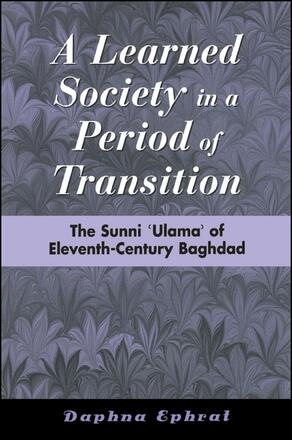
A Learned Society in a Period of Transition
The Sunni ʿUlamaʾ of Eleventh-Century Baghdad
Addresses the social significance of orthodox Islam during the medieval period in Baghdad.
Description
This book develops a new approach to the process of institutionalization and its social significance by focusing on Baghdad during the Sunni revival. Ephrat asserts that the Sunni revival was a period during which the fluid society of the "learned," the 'ulama', emerged as a more defined and exclusive group. By unveiling the world of learning beyond its legal and organizational structures, this book explains how the Baghdadi 'ulama' constructed their social bonds and identities.
Daphna Ephrat is Assistant Professor in the Department of History, Philosophy , and Judaism at the Open University of Israel, and teaches undergraduate courses in the Department of Islamic and Middle Eastern Studies at the Hebrew and Tel-Aviv Universities. She is the coauthor, with Nehemia Levtzion and Daniella Talmon-Heller, of An Introduction to Islamic Religion.
Reviews
"The nuanced but careful way in which this book uses biographical sources allows a great advance in our understanding of social history during the time covered." -- Roy P. Mottahedeh, Harvard University
"Ephrat's arguments that madrasas were not particularly important in the formation and solidarity of legal systems, that social networks and shared values were more important for that, and that there is no evidence that madrasas trained bureaucrats or had an established curriculum are revisionist and will be controversial (in the best sense)." -- Michael G. Morony, University of California at Los Angeles